Do you know about - Why Is the 'Your Baby Can Read' schedule Being Investigated by the Federal Trade Commission?
Baker University! Again, for I know. Ready to share new things that are useful. You and your friends.
Within our current education ideas we are often so focused on 'child based learning' and on constructivism (an established ideas of knowing and studying rather than a ideas of teaching) and teachers often do not realise that there is a serious lack of supporting evidence for its effectiveness in teaching children to read. Unfortunately this 'method' of teaching reading- the 'whole-language' arrival to teaching and studying - reflects this philosophy of learning, and has been the predominant arrival for early literacy teaching and studying throughout English - speaking countries (Pearson, 2000; Westwood, 1999, 2004). This arrival assumes that children are inherently active, self-regulating learners who produce knowledge for themselves, with teachers needing to give tiny or no explicit decoding instruction.
What I said. It isn't outcome that the actual about Baker University. You check out this article for facts about anyone wish to know is Baker University.How is Why Is the 'Your Baby Can Read' schedule Being Investigated by the Federal Trade Commission?

While this may be ok for many children there are nearby 20 - 30% who will fail. In Queensland (Australia) for example there are estimated to be nearby 20% of children who aren't reading to the improbable level by the age of 10 according to Naplan testing. This group of nearby 20 - 30% of our children also include those who are from disadvantaged backgrounds who often do not have rich phonological knowledge and phonemic awareness upon which to base new learning. Being taught using this 'whole language' formula has the consequent of compounding their disadvantage once they begin school. This is particularly the case for children from non-English speaking backgrounds, together with Indigenous children where English may be their second or third language. So why do so many people advocate their method- and use it? Results show over and over again that this does not facilitate literacy amelioration and achievement for All children.
The 'Your Baby Can Read' goods is based on this formula of teaching reading. It is advertised nearby the world with their video series having been run on cable television for years. Recently any way the Federal Trade Commission received a complaint arguing that the goods amounts to deceptive marketing.
On a basic level the Federal Trade Commission will look to the program name- and it's promise 'Your Baby Can Read!'
According to the World English Dictionary- 'baby' - means ' a newborn or recently born child; infant ' Most would report a baby as a child under the age of one- and a toddler thereafter- generally when they start to 'toddler' nearby on their feet. So it is not developmentally potential for a 'baby' to 'read'.
The program also does not appear to clearly define what they reconsider 'to read' to no ifs ands or buts mean.
Teaching very young children, who are already talking (ie older than 'babies') to recognise whole words is not something new. Even very young brains have the capacity to memorize whole words - as is the main component within the 'Your Baby Can Read' (Ybcr) program, and to link them with meaning ie see 'wave' and do the action. any way this does not directly collate with studying to 'read' and no ifs ands or buts not to produce the skills required to 'spell' words which is interlined with literacy development. It could do more harm than good for many if parents are encouraged to push children into something they are developmentally not ready for. We don't expect them to start running at the age of 6 months- so it would be laughable to buy trainers and start manually intelligent their legs back and forth speedily in a quest to produce an Olympic runner. intelligent legs back and forth in the air speedily isn't running- and memorizing words isn't 'reading'.
Children need to learn to speak before studying to read- ie our spoken word recorded on paper in text. Babies begin to produce language/ speech at separate rates any way when young adequate to be called 'babies' they are not yet talking. They are developmentally unable to say the words on the 'Ybcr' flash cards. The name of the goods is being investigated for deceptive advertising, and a advice will probably be that the name be changed to more accurately convey what is achievable ie indicating that the goods may help toddlers to memorize the shapes of words.
According to the National produce of Child condition Human Development: only 5% of children learn to read effortlessly, 20 - 30% of children learn to read relatively no ifs ands or buts once exposed to formal instruction, and for the remaining 60% of children, studying to read represents a vital challenge. For at least 20 - 30%, studying to read is one of the most difficult tasks they will ever encounter while their school years. 74% of the children who have reading problems in the 3rd grade, continue with the problems into the 9th grade.
According to National estimation of Educational Progress, practically one-third of all poor performers in fourth grade have college-educated parents. Fortunately, 90% - 95% of poor readers can greatly growth reading skills through arresting and early intervention programs that focus predominantly on teaching children about the alphabet code using synthetic phonics. We must teach these children explicitly and directly using (synthetic) phonics if we are to help them before they fully 'switch off'. The question is that many don't recognise who these children are until already failing- with 'phonics' being used as some type of corrective program. Why not just teach all to 'de-code'- and to produce phonological awareness from the very beginning? This is something that is not included within the 'Ybcr' program.
Parents should not despair- they can help their children themselves for free, and potentially help them far more in the short and long term. Parents can start listening for sounds in words very early on with children- alongside their individual language development. When they can say the word 'cat' they can also learn to hear the sounds in cat ie c+a+t (sounds not letter names) Start seeing for the pictures of those sounds in their environment and in words when sharing books- ie the photo of the sound 'buh' looks like this b (focus on lower case) In the early years children need to learn that we read words from left to right, and that the sounds in the words correspond with the sounds we make with our mouths when saying them aloud. Listen for how many sounds there are in words- and what phonemes/ digraphs etc are used to characterize them.
Ask children listen to words 'sounded out' gradually (ie blending) and we manipulate sounds. (what word would be say if we took the 'r' out of 'frog' etc. ) Basically developing phonological awareness- teaching using synthetic phonics- amd manufacture it meaningful as it relates to the words they are speaking. So (other than their name) the first words parents could teach are words that they can de-code- using a small estimate of sounds. Within the Jolly Phonics program for example the sounds ''s,i,n,p, a, t' are introduced because the children can learn to reading and spell numerous words using those sounds. It doesn't have to be those sounds though. What is important here is that the child is studying at his own pace- and that is it fun. Yes, I have taught many very young children to read and spell- based on studying the 'code'. Teaching and studying strategies need to be developmentally approved - and not at the cost of other types of learning.
What is 'reading' and 'spelling'?
We could possibly report the main concepts being:
* that the words we speak are made up of sounds.
* that these sounds can be represented on paper - and together come to be 'words'. Words can then be used to form sentences and so on- with the text used for a estimate of reasons- to tell a story, to report information etc
* that sounds are represented on paper from left to right
* that we form pictures of sounds/ letters on paper in ways that makes writing easier (and will be quicker and neater) - ie from top to bottom and flowing across the page
* that some sounds in spoken language can be represented using more than one letter, and in separate ways ('f' could be ph, ff etc)
* that some sounds on paper can be spoken in separate ways depending on the other sounds in the word - eg 'ow' as in cow or as in 'tow'
* that some words can't be de-coded and must be learnt (eg yacht)
If children learn 'the code' then they don't need to rely on memory, as happens within the 'Ybcr' program. Children can therefore learn to not only be confident, fluent readers but also proficient when spelling nonsense and unfamiliar words. In fact this is recognised as being so important that 'non words' are now included within the Uk, within National Curriculum spelling tests. In the early stages studying to read and spell words no ifs ands or buts has far more to do with the mechanics of the alphabet code than the meaning of the words. Ensuring that 'nonsense' words are included sends the message that synthetic phonics is important. Children taught using a whole language arrival - as in Ybcr- will struggle as they haven't had opportunity to learn the words. Children taught using phonics can read and spell any word that is de-codable- which is most of the English language. It would seem far more logical - and helpful-to give them those skills instead.
Yes, some children will learn to read using sight words-combined with other skills- ie the whole language arrival put forward within Ybcr any way if they can learn in this way then they can learn in any way and won't have difficulties later on. Studies show that children can start to learn to read and spell later on and still be at the same level as others. In many countries with excellent academic standards children don't even start school until the age of seven. The Cambridge customary report is the biggest report of customary education for more than 40 years. Within the report formal education is not recommended until at least six years of age. There is no 'window of opportunity' for studying to read, as there is for studying language - as the creator of the program claims. My arrival is to start early and instill a love of studying - and to generate an productive partnership with child, parent and then teacher. The reliance that comes with early achievement is far more likely to help that child continue to do well in school.
Good early years educators start developing phonological awareness and a love of the written word early on- being true to make sure they are working at the child's level, that studying is meaningful, and that he is having Fun. They offer play opportunities to generate learning. The focus is on helping children to come to be productive and motivated learners- any way they are also aware that studying to read is something most children need to no ifs ands or buts be taught explicitly. Parents don't necessarily trust that their child is going to have astonishing teachers, so why not teach them to read and spell even before school if ready? And this is why so many turn probably to the 'Ybcr' program. They don't see this as pushing their child but more as a deterrent measure. They do have a valid concern that not all teachers have the knowledge they need, in order to teach All of the children in their class to read and spell with confidence.
Literacy is separate to most subjects - the children who will find it difficult need direct, explicit education in the alphabet code. any way trying to do this as early as potential isn't the answer. We need to teach parents what they can do- and also how to know if their child is ready. The children who will struggle in school won't 'just pick it up' - they won't 'just catch' up. If this was the case literacy achievement wouldn't be so poor in so many schools and in so many countries.
What is worrying for society is that delinquency and poor literacy achievement are known to be so interlinked; with some Us prisons no ifs ands or buts predicting future intake on year 3 and 4 reading scores! We are failing too many children, even though we know that if we use a deterrent arrival and teach children directly and explicitly in the early years, with a focus on phonological awareness, then we could turn this. So we need to arm parents with the best information. My concern with this program is that it doesn't send out the best information- especially if they have a child who is going to have phonological processing difficulties and poor phonological awareness.
Of procedure there are benefits to using the 'Ybcr' goods as it encourages parents to come to be actively complex in their child's learning. Many children will love the attentiveness they get when adults cheer and clap their 'success'. And many may produce a love of the written word because of this clear attention- if, of course, they succeed. The reality though is that Ybcr can not only confuse many children but give them the wrong message about what reading and spelling is. It sends out the wrong message to parents who are only seeing for ways to help their children- and can inadvertently do just the opposite.
How, as adult readers, do we 'read' unfamiliar words. As these are not words you use daily you will go back to your capability to 'de-code'. You will start from left to right and sound out the word- seeing for 'sounds' or smaller words- and putting them together. For example in the word 'multitudinously' you would probably read 'multi' first and then sound out the rest- tu (chew) or tud followed by 'in and then 'ously' (as in enormously) You may have done it differently. If asked to spell the word 'fasorta' you will realise there are more than 10 ways you could 'spell' this word based on your knowledge of the alphabet code. If having to learn whole words you would not know how to spell this word as you hadn't be taught it specifically.
Bottom line, children deserve to be taught in ways that will work for the top number. Teaching them to recognise whole words - the crux of this product- - is not something that will work for all children and will no ifs ands or buts confuse them as to what reading and spelling no ifs ands or buts is. Why risk starting out on the wrong foot? Parents can forestall reading difficulties by helping their children in the early years- but should be doing so in ways that are supported by contemporary study and empirical studies and more likely to help the most estimate of children. 'Synthetic phonics' is possibly our best weapon in the fight against literacy difficulties and anything does not use this at the centre of their teaching should be carefully reviewed and ultimately discarded.
There has been vital study into early literacy amelioration over the past few decades, and this has been cited within government reports such as the Rose report (Uk) and the Au Inquiry into the Teaching of Literacy. All recommending that early programs focus primarily on systematic, explicit and direct teaching in phonics. The Ybcr includes no phonics work (the amelioration of phonological awareness and the link to our alphabet code) So in addition to 'babies' being developmentally unable to read using any method, there are also valid issues relating to either the 'Your baby Can Read' program can be productive for older children. As a consequent this investigation by the Federal Trade Commission is highly likely to be upheld.
I hope you have new knowledge about Baker University. Where you may put to easy use in your daily life. And most of all, your reaction is Baker University.Read more.. Why Is the 'Your Baby Can Read' schedule Being Investigated by the Federal Trade Commission?. View Related articles related to Baker University. I Roll below. I even have suggested my friends to help share the Facebook Twitter Like Tweet. Can you share Why Is the 'Your Baby Can Read' schedule Being Investigated by the Federal Trade Commission?. Webster University
Webster University

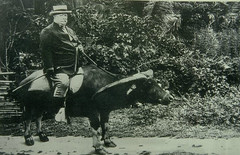

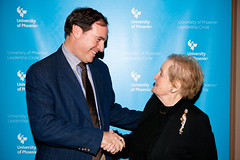
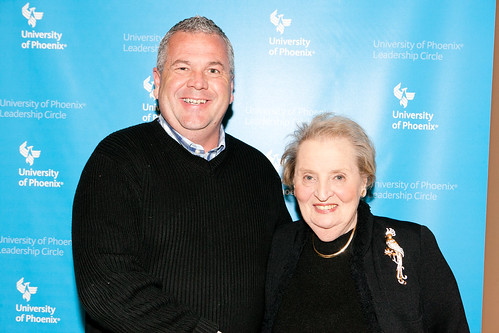
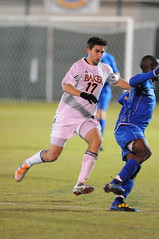

 Webster University
Webster University

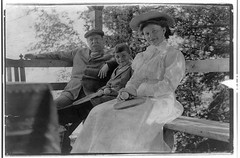
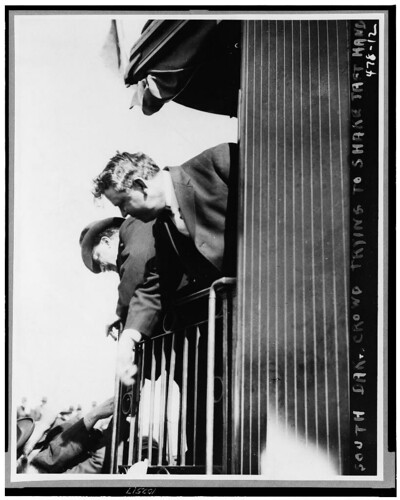
 Webster University
Webster University
